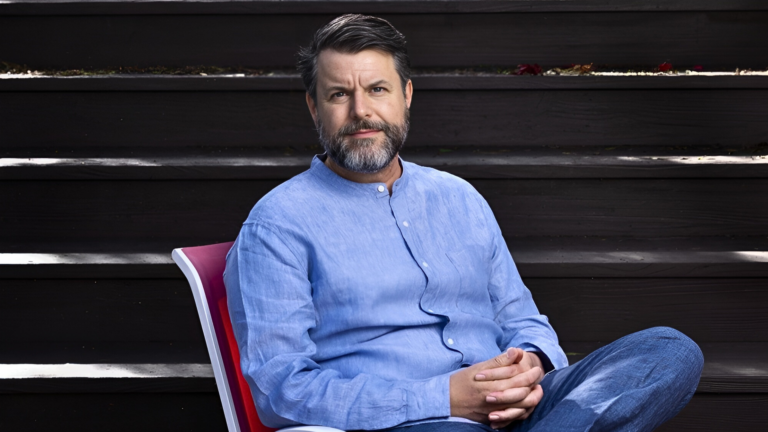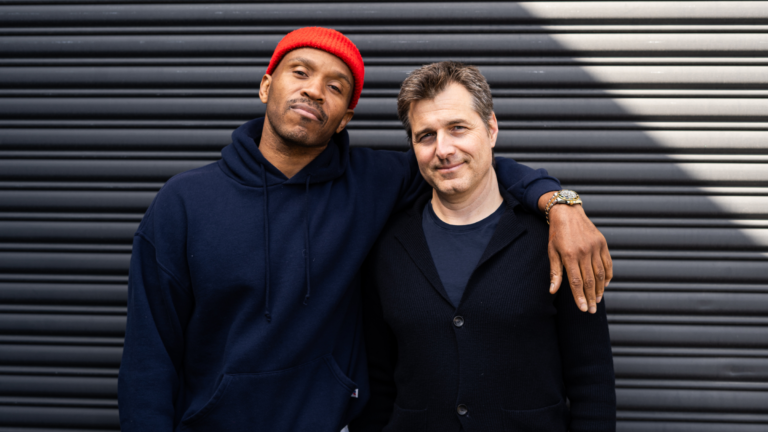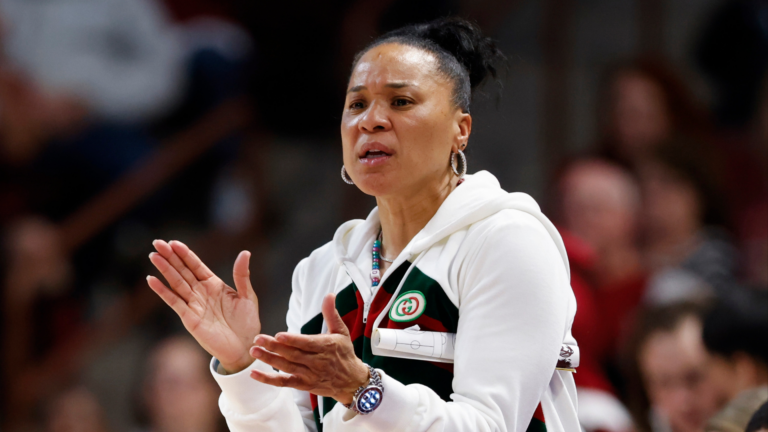This week’s conversation is with Blake Mycoskie, a social entrepreneur and the founder of TOMS.
Blake started TOMS in 2006 and revolutionized the way companies give back by giving shoes to a child in need for every pair purchased.
With all his focus going to TOMS, Blake realized he stopped taking care of himself and was diagnosed with mild depression.
With this diagnoses, he began exploring how he could better show up for himself and others and that ultimately led to his newest venture, Madefor, where he’s helping people gain control of their lives.
We cover so much in this conversation.
Blake shares how he got started in entrepreneurship, what’s been key to his success, and why his initial concept of success proved to be offbase.
The external factors, the money, the fame, the status all came with Blake’s business accomplishments but when he got everything he was chasing, he realized it wasn’t what he was actually interested in.
My hope is that if you only take one thing from this conversation, it’s that none of us have it all figured out, no matter how successful we may appear on the outside.
“I spent my first 40 years looking to feel love, acceptance, and applause. That got me a lot but at the end of the day, I felt all of it, and there was still something lacking. What I’m searching for now is all the ways that I can give love.”
In This Episode:
What might people not know about his career path?
One thing that some people might or might not know about my entrepreneur career, I’ve started six companies and every single one of them I had no experience in before I started. I’ve been in the laundry business. I’ve been in the TV network business. I’ve obviously been in the shoe business with Toms. Now I’m in the business of helping people increase their wellbeing through learning new habits and practices with Madefor. Every single one of those things has been I had an idea of something that I thought could be better in the world, or better in my life, or better for my friends and I then create a business to make that idea come true, and in a sense manifest it.
What he learned from his divorce
Any situation where you’re faced with dealing with someone in a confrontational way, or a challenging way, or a difference of opinions, whether it’s religion, politics, whatever, the more you can open and really soften your belly, and your chest and really open to that person’s experience, then you can really … They say, walk a day in someone else’s shoes. I think that’s really good advice is really try to feel what it’s what to feel them, to believe what they believe and to see what they see. You don’t have to agree with it, but if you can feel it, then you can approach any kind of challenging situation, I think, in a state that is much more manageable and to keep much more ease.
What was the impetus for TOMS
I thought, “If we could build a business differently, where we were not only focused on making it profitable, but really having a huge impact on people who need, have really needs, that would be a more beautiful way to use my entrepreneurial gifts.” It was totally radical. No businesses were giving back in that way back then, 13 years ago. There was no other company doing anything close to a one-for-one model, and I just thought I want to do this because I think it’s a way to challenge, and I’ve always been someone who likes to challenge conventional thinking. Challenging thinking about what the purpose of business is. Is it really just to maximize profits, or is it to create benefit for all the stakeholders? The people who work at the company, the people who can benefit from the company and the people who enjoy the products.
What he learned from his parents
I saw that you can not have experience in something. She (my mom) didn’t have any experience in health and nutrition. No college degree. Apply an idea that you’ve discovered that works and that can help a lot of people and make a lot of money. That was very interesting, because I was 15 years old when that was happening, and so that was one part of the impression. The other part of the impression is here’s my dad, who spends all day every day helping people feel better as a doctor. What a great vocation to have, and the joy that he has. I would run into people in town and they’re like, “Yo, your dad fixed my knee, and now I can play golf again.” I’d see the joy in their face. So, having those two parents, and those two experiences in their careers I think is what really created a blend for me of wanting to be an entrepreneur and liking the idea of starting something from nothing, and then also always having this idea of how is my life helping others.
How does he think about risk?
I’ve never felt like I’ve taken a risk with a business, even though people externally will be like, “You take massive risks.” To me, and this is what I talk about when I get to speak to university students and people is like I didn’t choose to be an entrepreneur and take a calculated risk. My initial business was, I broke my leg, I couldn’t carry my laundry down to the facility. I looked for somewhere in the yellow pages that would pick up and delivery laundry. It didn’t exist. I thought, “That should exist. I’m going to start one.”
What’s the best advice he ever received?
“The more you give, the more you live.” I think had Bob Dedman (mentor) not planted that seed, TOMS never would have happened. I just would’ve kept on starting businesses to make money. But, at some thing, six years after he’d planted that seed and he had passed away, I just had this feeling of, yeah, the more you give, the more you live. That event has shaped my career and now pretty much everything I spend my time on.
The power of journaling
I really do believe that you can manifest anything in your life. Now you might use the word manifest. You might use the law of attraction. You might use the power of prayer. I think it’s a little bit of all for me. But I’ve seen almost everything that I’ve fully committed to in my journals unfold in some version of that in my life. I think there’s something really powerful that we are co-creating our life with God and with the universe in real time. So I’m very careful with the thoughts that I think, and specifically what I write down. I’m not surprised when things fall into place perfectly for me.
Taking care of others
The more that we focus on others, just the more open we become. The more open we become, the more we experience love. The more love we experience, the lack of fear we experience. Then, all of these things like stress, and fear, and pain and jealousy and depression just dissipate. How do we every day have practices in our life that help open us and help us get our vision focused on others, so that we can really bring in all the goodness that is available to us, and really in a sense self-heal in real time?
Who’s inspired him?
There’s this great Jesuit, Jesuit priest named Anthony de Mello, and he’s passed away now. But he was an amazing. He says the greatest lie we were ever told was that the most important thing to ever feel in life is to feel loved.” When you read that, you’re like, “That sounds about right. To feel loved. That seems like a really important emotion.” He says, “No, the problem with that is, is that we’re taught that at a young age, and that feeling love is so important. But then, really what that means is to feel loved you need to feel successful, and to feel loved, you need to feel accepted, and to feel loved, you need to feel attention. Those things cause you to feel suffering. But the greatest need in life is to give love. If you’re giving love, then you will naturally be love and you won’t have any needs.”
How has what he’s searching for evolved?
I really think I spent the first 40 years, I think it’s just in the last three years that I’ve really, and maybe even the last 18 months, to be honest, that I’ve really understood that I spent 40 years looking to feel love, feel acceptance, feel applause, feel all these things, and that got me a lot. I was really good at it. I accomplished a lot. But at the end of the day, I felt all of it, and there was still something that was lacking at times. Not always, but at times. Where I’ve landed is, is what I’m searching for now is what are all the ways that I can give love.
Depression
It can be a great teacher, and oftentimes, maybe from a spiritual perspective, depression is God’s way of getting your attention on something that you are not, or you’re neglecting. Something that your soul, your light is dissatisfied with, or that you have concern around but you’re numbing it with work, or alcohol, or having a lot of fun and going on a lot of trips, doing whatever you do, watch Netflix, I don’t know. But oftentimes, depressions the last resort. You have to actually feel like you don’t want to get out of bed. It has to get that intense for you to realize that no amount of Netflix, or collecting vintage cards, or beautiful women or whatever’s going to solve it.
Agency
I really feel that the key, when you get in that state, and in some ways to avoid that state is developing what, I think you used the term earlier. A personal agency, a feeling of control over your life. Because, large part of depression is, in my case, was feeling that things were out of my control. That I was enslaved by my own stuff, my own lifestyle. So giving people the ability to have a mindset that allows them to have personal agency, personal control is I think the absolute key anecdote to dealing with depression.
How does he think about success?
I think that life sometimes is designed in a way is that the way that our culture, media, etc. talks about what life success looks like is I think very far off but very clear. Make a lot of money, have a great wife or partner, kids. All these things. What’s great about that, actually, is if you actually are lucky enough to do all those things, every person that I’ve met has the same conclusion. That is, it’s not making them any happier than when they were just starting out in their apartment. The key is not success by the way it’s defined, but really what that does is it creates a starting point and it’s a catalyst for doing this inner work. Because, if you accomplish everything that you set out to do, and you still feel hole in your heart or you still feel a longing, then there’s nowhere else to turn externally anymore, so you’ve got to turn internally. I think that’s what started happening with me about four or five years ago, after I had all this success, after I made hundreds of millions of dollars in selling Toms.


